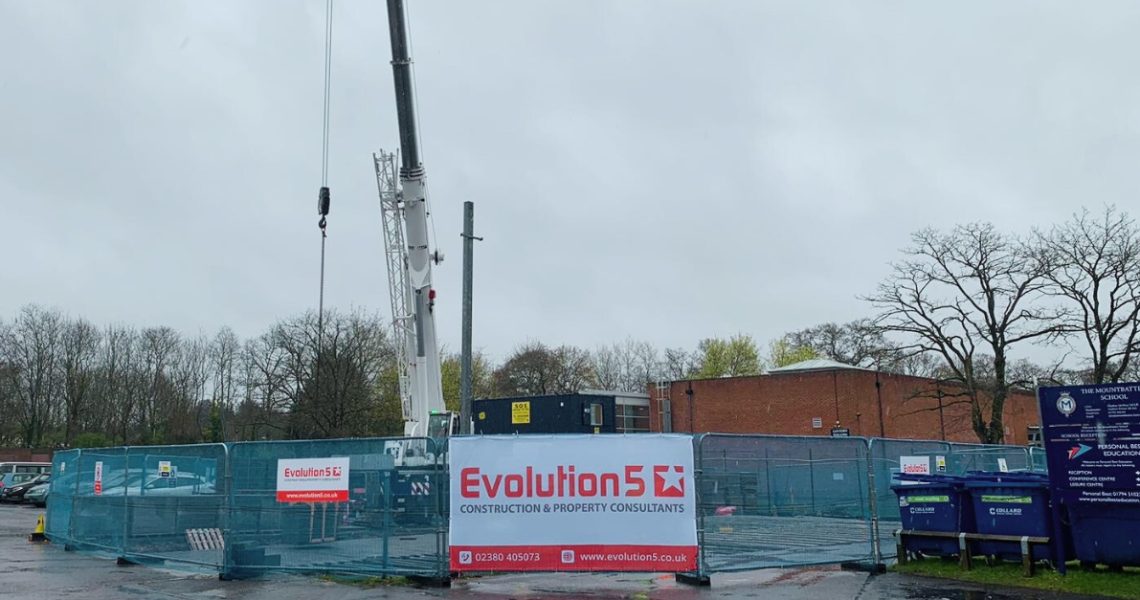Whether your project is at tender stage or already underway and in need of cost management, balancing cost with quality is always top of your mind. With a proven track record across sectors like education, healthcare, and affordable housing, where tight budgets and constrained funding are the norm, we demonstrate how how value engineering can transform your project without compromise.
Despite its importance, value engineering is often misunderstood, with the assumption that it’s the same as cost-cutting or scope reduction. In fact, these approaches often comprise quality by stripping out essential design elements, resulting in the project falling short in both performance and expectations.
The Evolution5 team understand the nuance of true value engineering and the importance of maintaining design intent and performance standards. With proven results across a variety of sectors, we’ll show how value engineering can transform your project, helping your budget go further while delivering the greatest return.
What is Value Engineering and what it is not
True value engineering is different from cost-cutting and scope reduction. Understanding this difference is key to delivering a successful project. It’s not about cutting corners, but about making smart, strategic choices that protect quality and get the best for your budget. At Evolution5, our approach is systemic and collaborative, always working to protect the integrity of the design while maximising value.
Where cost-cutting removes elements and risks reducing quality, and scope reduction changes what gets delivered, value engineering maintains performance and often exceeds expectations.
Common Client Challenges: When Budgets Don’t match Design
One challenge we see time and again is when a project’s design exceeds the budget. By the time a scheme reaches tender or contract stage, the specifications are often locked in with products or systems that the design team is familiar with, rather than those that deliver the best value. Although selected with good intentions, those choices can limit flexibility and drive up costs.
Clients often assume that if a design is already in place, it’s good value. But without a specialist value engineering review, you could be locked into solutions that are more expensive than necessary or that could be delivered more efficiently.
At Evolution5, we apply our value engineering expertise at the right moments to challenge assumptions, review specifications, and find smarter, more efficient approaches to your project.
This is especially important in sectors like education, where budget constraints, and evolving technology requirements add extra pressure on costs. Here, strategic value engineering can be the difference between a stalled project and one that’s delivered on time, to specification, and on budget.
Real Results: How Evolution5 Keeps Projects on Track
Here are some examples of where our expertise helped our clients stay within budget:
Forest Bridge School: Smarter Choices, Bigger Savings
When Evolution5 got involved with Forest Bridge School, the original MEP (Mechanical, Electrical, and Plumbing) design featured some costly elements. Individual containment for electrical installations and more expensive cable installation methods were driving up the project’s budget. We knew there had to be smarter, more cost-effective solutions:
- By swapping individual containment with more affordable basket trays and switching to efficient cabling solutions, the client saved £5,000 without compromising on quality or performance.
- Instead of digging separate trenches for drainage and power, we combined them into one trench. This simple change reduced both labour and plant costs, while minimising disruption on site.
This wasn’t just about cutting costs, it was about thinking outside the box to deliver better value through smarter, more efficient solutions.
The Mountbatten School: Bringing Vision to Life, on Budget
The Mountbatten School in Romsey approached us with a clear vision, but they were unsure if their fixed budget of £800,000 was realistic. Our team quickly got to work, applying a six-week value engineering review to refine the design.
We compared the costs and benefits for a traditional build versus a modular build and used a hybrid approach to achieve the necessary savings while maintaining quality. By fast-tracking planning and applying strategic cost management, we turned their vision into a feasible, budget-friendly plan. The project was moved from concept to reality on time and within spec and budget.
Due to the success of this project, Evolution5 was nominated as the preferred contractor for future projects by The Mountbatten School.
Read more about The Mountbatten School project.
St Georges: Value Engineering at Tendering Stage
At the tender stage of the St Georges project, Evolution5 successfully outbid the four other leading contractors by providing £60,000 in savings through value engineering. This was achieved by optimising the building structure as well as making savings in M&E by revisiting elements such as intercom systems, manufacturing cables, and mains boards.
Drawing on our strong relationships with experienced sub-contractors we were able to identify opportunities for cost reductions.
Building for the Future: Why Sustainability Makes Value Engineering Essential
As the construction industry evolves, sustainability is a core requirement. Projects now face growing pressure to meet environmental regulations, energy efficiency targets, and long-term cost expectations, whether that’s achieving BREEAM ratings or hitting net-zero carbon goals.
But sustainable solutions often come with higher upfront costs. Without value engineering, these are often the first things to get cut when budgets get tight, risking long-term performance for short-term savings.
That’s where a smart, whole-life value approach comes in. Take triple glazing or high-performance insulation, they may cost more initially, but they reduce operational costs significantly over the building’s lifetime. With value engineering, these options stay on the table by weighing cost against long-term benefit.
Real-World Examples: Iconic Projects Shaped by Value Engineering
Even iconic projects like the Walkie Talkie building and the Jubilee Line extension show how value engineering can deliver future-proof solutions without compromising design integrity or functionality quality and what can happen when value engineering is overlooked.
- Jubilee Line extension – Canary Wharf Station: Smart design choices delivered both cost savings and enhanced user experience:
- Glazed canopies reduced the need for artificial lighting and signage.
- Natural ventilation improved passenger comfort while lowering operational energy use.
- These measures cut both capital and long-term running costs, demonstrating how value engineering supports sustainability, functionality, and efficiency from day one.
- London’s 20 Fenchurch Street — “The Walkie Talkie”: This high-profile project shows what happens when value engineering is overlooked:
- The curved glass façade caused intense solar glare, damaging nearby property.
- Original plans for shading were reportedly removed to cut costs, leading to expensive retrofitting of a brise soleil system.
This is a perfect example of the importance of making well-informed decisions that balance cost with long-term performance, risk, and occupant comfort.
At Evolution5, we integrate sustainability into value engineering, helping you deliver buildings that aren’t just cost-effective today, but built to perform for years to come.
Helping You Add Real Value Through Value Engineering
At Evolution5, we don’t just apply value engineering, we tailor it to your project’s unique needs. When you work with us, you’ll be paired with a quantity surveyor who understands your specific objectives and constraints. With strong commercial awareness and a collaborative approach, they’ll help identify cost-effective solutions that maintain quality, meet design intent, and deliver measurable results.
If you’re ready to get more from your budget and achieve smarter project outcomes, get in touch today.
Frequently Asked Questions
What is Value Engineering in Construction?
It’s a systematic, strategic approach to improving a project’s value by analysing functions and identifying cost-effective alternatives without compromising on quality, performance, or compliance. It’s not about cutting corners but about making smart choices that deliver better outcomes within budget.
Why do construction project designs often exceed the budget?
Many construction projects go over budget because designs are locked in, choosing familiar products or systems rather than the most cost-effective ones. These choices, while meaning well, can limit flexibility and increase costs unnecessarily.
What are common misconceptions about value engineering?
It’s often confused with cost-cutting or scope reduction. Unlike those approaches, true value engineering maintains design integrity and performance while identifying smarter, more efficient solutions.
Why is value engineering important for sustainable construction?
Sustainability often requires energy-efficient materials and systems, which may have higher upfront costs. Value engineering helps balance these costs with long-term savings by identifying whole-life value. This ensures sustainable choices aren’t sacrificed due to budget pressure.
When should value engineering be applied in a construction project?
The best time to apply value engineering is during the design and pre-construction phases. Early involvement, even at tender stage, allows teams to evaluate specifications, explore alternatives, and avoid costly changes later in the build.
Can value engineering help meet compliance and regulatory requirements?
Yes. A well-executed process ensures any proposed changes still meet planning regulations, building codes, and performance criteria. It’s about smarter compliance, not compromise.





